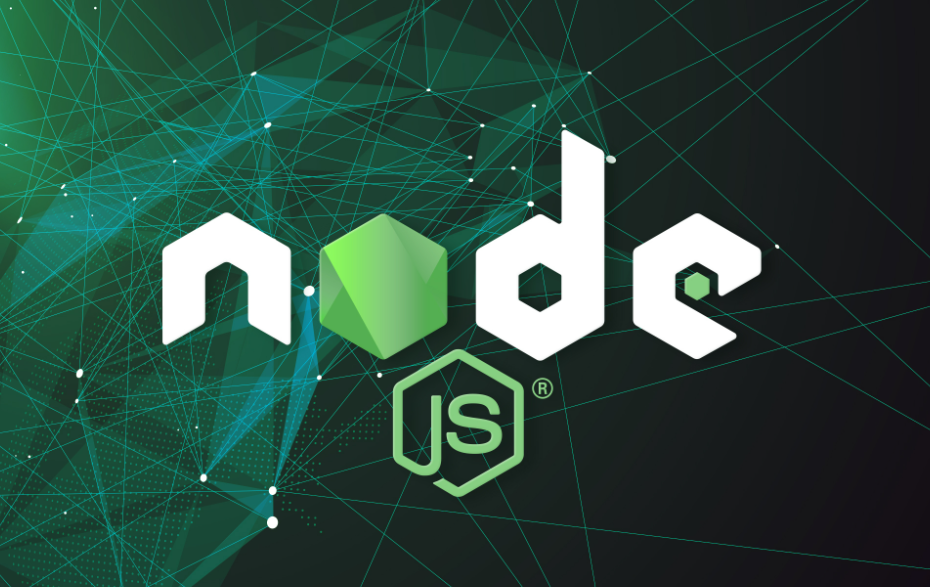Implementation options and advantages of Node.js cross-platform environment

Node.js advantages and cons are well-known. Node.js allows developers to load mobile apps with several features without crashing or delaying servers. JavaScript, one of the simplest and most popular programming languages, is currently in demand.
Node.JS is the most popular JavaScript development environment. Statistics found that more than 49% of mobile app developers utilize Node.js.
This article will briefly discuss what the advantages of Node.js and its functionality across different app types and models are.
Node.Js Explained
Node.js is a cross-platform, open-source JavaScript run-time. It’s a full-stack development environment for mobile app servers or client sides that splits jobs into “nodes.”
When asked, “what are the benefits of Node.js,” we mention its structure. It’s the reason it was created, and an ecosystem of open-source modules was built around it.
Nodes make this ecosystem useful for developing iPad, iPhone, and Android apps. Because each task has its node path, it can operate simultaneously without bogging down the server.
Which Tasks Work with Node.js
Some app development tasks work better with Node.js. Discussing the pros and cons of Node.js, it’s crucial to understand which jobs work the best.
Multiplayer Games
Because of how quickly it reacts, it’s great for coordinating with other players and powering various applications.
Social Media Apps
Programmatically speaking, social media requirements are typically low, but flexibility is essential. The benefits of Node.js will also shine in this setting.
Virtual Emulators
Node.js is a good choice for developing a 3D virtual world since it allows for the required instantaneous looping feedback.
Apps with Asynchronous Functions
Is your app a multi-featured entertainment platform? A health and fitness app with multiple uses? An educational app with in-depth course information and individual profile creation? Node.js may be useful for developing all of these types of applications.
Tasks That don’t Work With Node.Js
The widespread use of Node’s flexible, scalable, and low-weight run-time environment is justified. When considering “what are the benefits of Node.js,” it’s common to conclude that this run-time environment isn’t the best option for every task. It would be best if you didn’t use this Node for these kinds of tasks:
Apps That require Significant CPU Computation
In most cases, it utilizes a single CPU and an I/O model based on events rather than blocking. Creating a task that places a heavy load on the CPU will prevent new requests from reaching you. Application performance will degrade when it becomes bogged down by the app’s computation threads. The speed and efficiency that is perhaps Node.js’s greatest strength will be rendered useless.
Apps That Are Simple
Node.js may run several jobs simultaneously. If your app has few functions, Node won’t help. Instead of Node, use more straightforward choices. Angular.js, PHP, or Ionic may work better. Node.js will never win this debate as it doesn’t improve app performance.
Apps That require Relational data access
There are multiple benefits of Node.js, but its support for relational databases isn’t one of them. Compared to other frameworks’ toolboxes, such as Ruby on Rails, it lacks the depth and breadth of database utilities. This post has already covered why Node.js fails to perform well when processing data on the back end. Data mappers, active record data-access layer implementations, out-of-the-box data-access setup, and other tools are only a few examples of what other programs can provide.
4) Node.js Advantages
Quick Scaling
One of the main advantages of using Node.js is that it centers on the concept of an “event” shared throughout all of its nodes. A customer does something such as make an in-app purchase or contact support through email. You can add as many nodes as you like to your main programming function. This allows for vertical scaling by creating new capability paths that ultimately go back to the original application code, allowing for greater scalability. Alternately, horizontal scalability entails integrating additional capabilities into already-existing systems. One of the main advantages of utilizing Node.js is its scalability, which allows your application to expand as needed.
High Speed and Performance
The environment is very fast since input and output operations occur in a non-blocking fashion. Rapid execution of code improves the entire run-time setting. In significant part, this is because of the way its system is divided up. It also uses Google’s V8 JavaScript engine, which may account for its success. The plug-and-play compatibility of its apps and the prevalence of JavaScript in its development process enhance the system’s responsiveness and efficiency.
Flexibility
Flexibility is Node.js’s major pro. Node.js changes only affect that Node. Unlike other run-time environments or frameworks, it only requires a node modification. This is useful for building and maintenance. When JSON is combined with Node.js, client and web servers may communicate data. APIs let programmers add TCP, HTTP, DNS, etc., to the server.
Node.js – Does That Work Enterprise and Startups
Let’s start with businesses. Large enterprises need scalability, speed, and usability. Node JS’s creation isn’t a mystery. Joyant wants to boost node JS development across industries, and the Industry responded quickly.
IBM, Microsoft, PayPal, Fidelity, and SAP are among the founding members of the organization responsible for defining the JS run-time environment. Medium, Trello, Uber, and Zendesk are just a few of the nearly 300 well-known companies now members of the foundation. There should be no limits on what businesses can achieve with Node so long as they avoid use cases that don’t play to its strengths.
Startups can benefit from Node.js. Its innate capabilities help them to be agile and scalable. Open-source programming helps firms save development costs.
Final Verdict
Node.js advantages are significant for any type of startup. Its innate capabilities help startups be agile and easy to scale. Startups can reduce development costs by using open-source software. Node.js is a game changer and is expected to stay for a very long time due to the fact that it is powerful, intelligent, and dominating.
